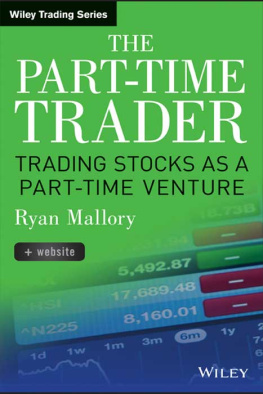Finance Psychology:
How To Begin Thinking Like A Professional Trader
(This Workbook About Behavioral Finance Is All You Need To Be Successful In Trading)
Reproduction, translations, further processing or similar actions for commercial purposes as well as resale or other publications are not permitted without the written consent of the author.
Copyright 2020 - FOREX INVESTMENT LOUNGE
All rights reserved.
Finance Psychology: How To Begin Thinking Like A Professional Trader
Trading psychology is becoming more and more important for investors. Even the newcomers to this business increasingly understand that the psyche plays a very important role in order to be successful on the stock exchange. No wonder, since the constant ups and downs on the markets are largely caused by the emotions such as fear and greed of speculators themselves.
Professional traders assume that about 80 percent of trading success is determined by the psyche. Some even speak of 100 percent. Scientific studies on this topic also clearly prove: Above all emotions decide on victory or defeat, especially fears have a great effect. After all, they significantly influence the actions of the players. In addition, excessive expectations and illogical patterns of thought and behavior make the path to profitable trading more difficult.
At the beginning, trading seems to be a kind of Formula 1 race of money multiplication for many. If one takes a closer look at the wishes of the trading beginner on a psychological level, his all too human intention becomes clear: he wants fast, secure profits and usually completely ignores the risk of loss. Moreover, many people do not want to take responsibility for their trading decisions. Instead, they blame others for mistakes or losses.
Professionals behave differently. For them, trading is a professional business, which is mainly determined by risk. They see their task as managing it. To do so, they need certain previous knowledge and skills.
In the following chapters, you can read about the mental ways of thinking and acting that are necessary to be permanently profitable on the speculative capital market. But you will also learn how to expose typical mistakes and how to eliminate them effectively.
I hope you enjoy reading it.
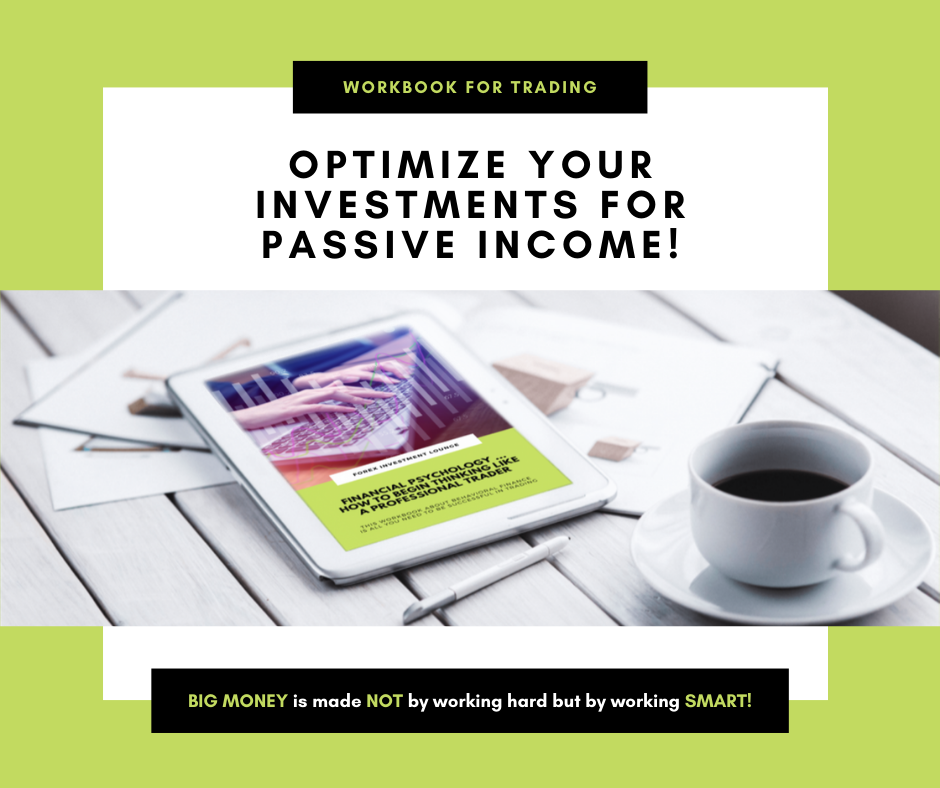
Financial psychology - origin until today
Financial psychology is a relatively young branch of psychology. It investigates how people behave and experience when dealing with money or money-related products. This science focuses primarily on the perception and processing of information related to financial products.
In the financial sector, the research area of Behavorial Finance has stood out. This field of research emerged in the early eighties in the USA. It combines traditional economic research methods with expert knowledge of psychology. The research results of Behavioral Finance can help private investors and professionals to better understand their actual motives for investment decisions on the speculative capital market. They make it clear according to which patterns of thought and behaviour the players usually act.
Behavioral Finance assumes that investors act in an illogical way, mainly due to unconscious behavior. There is a well-known saying: "If you want to be smarter than the market, you have already lost. If you are aware of your irrational behaviour, you have a chance".
The fact that stock market events do not result exclusively from rational behaviour was described by the eminent economic theorist John Maynard Keynes as early as 1936 in his major work "The General Theory of Employment, Interest and Money". However, the true causes of irrational behaviour in risky transactions were proven in 1979 by the research paper "Prospect Theory". The two economists Daniel Kahneman and Amos Tversky recognized that people usually do not like risk - unless they are about to lose. Then they love risk. This "Prospect Theory" by Kahneman and Tversky, which is the foundation of modern finance, was awarded the Nobel Prize for Economics in 2002.
In the following years, Richard Thaler, Hersh Shefrin, Robert Shiller, Terence Odean and Martin Weber provided further in-depth knowledge in the field of behavioural economics.
Another key finding of Behavioral Finance research is that speculatively oriented traders are consciously or unconsciously guided primarily by their emotions. This inevitably leads to (wrong) decisions. Typical emotions are the fear of losing money when things are going badly and the greed for more money when things are going well.
Man has the urge to want to control events with the help of his knowledge. But precisely this is not possible on the speculative capital market, because the course of stock market prices is uncontrollable. The only thing the investor can control is himself, provided that he actively works on it. However, since the trader prefers the fast track, he is often not willing to go the long way of his own personal development. This usually takes a lot of time, sometimes months or even years. However, it is clear that the main reason for success in stock market trading is to be found on the mental side.
Typical thinking and behavioral patterns of Behavioral Finance research are Cognitive dissonance, framing effect, sunk cost effect and heuristics. These are discussed in more detail in the following chapters.
Framing effect
When people make a decision, they put it into a frame of reference and check their assessment for profit or loss. The two Nobel Prize winners Tversky and Kahneman (2000) recognized this and called it the "framing effect".
In simple terms, the framing effect means: "What am I looking at?" Numerous studies have proven that people evaluate the same results differently.
An example: In case A, you tell the subjects they can keep 20 euros. In case B, the test persons are told that they will lose 30 euros. The starting value is 50 euros. The result remains the same as minus 30 euros, but the assessment of the situation in case A is more positive.
Another example: A profit of 10 Euro to 20 Euro (100 percent) is generally felt more strongly by the individual than the profit of 1,000 Euro to 1,010 Euro. In absolute terms, the difference is 10 euros in each case.
In trading, the framing effect means that monetary amounts are not valued realistically. Anyone who earns 50 euros a day with a 50,000 euro account usually has the impression that this is too little. However, if you manage to earn 50 euros each on 200 trading days a year, this results in an annual return of 20 percent!
The lottery game shows that people prefer a sure win of, say, 500 euros, rather than exposing themselves to the risk of winning 1,000 euros with a 50 percent probability or possibly going away empty-handed. This is also one reason why traders find it so difficult to run winnings: They prefer to opt for immediate and safe profit taking rather than taking the chance of even higher profits.
The framing effect is also regularly used in retail. Shopkeepers know that customers prefer to buy a product when they get a discount. If a pair of trousers is reduced from 198 euros to 149 euros, the customer's decision to buy is made easier. The same trousers without a discount would not have been so popular with the customer for 149 euros.
Sunk cost effect
Translated into German, sunk cost means "sunk costs". These are costs that have already been incurred in the past and no longer play a role in the current valuation.
Here is an example: A trader buys shares at a unit price of 100 euros. A short time later the value of the investment is only 75 Euro per share. No one can predict whether these shares will ever reach the entry price again. However, many investors are prepared to reduce the price of the shares in this situation. So they throw good money after a perhaps bad investment and "sink" further money with it.
Next page
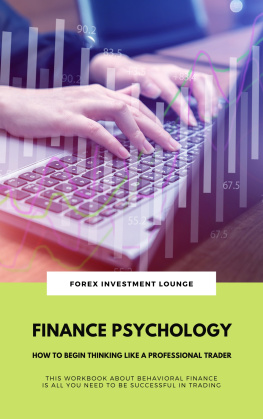
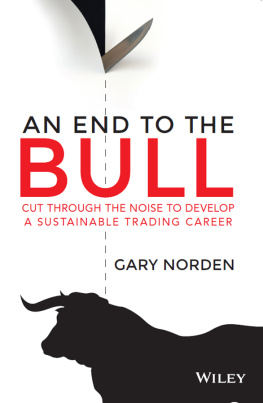

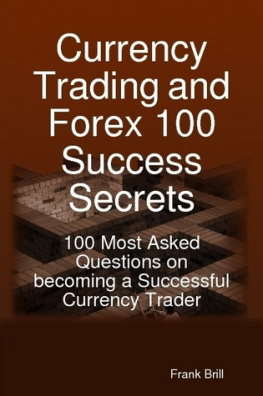
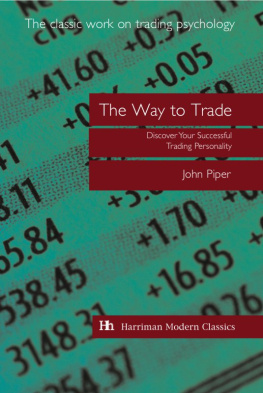
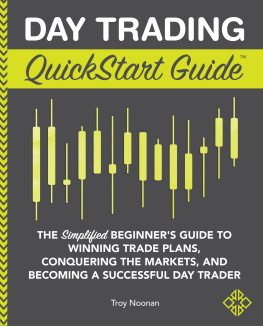
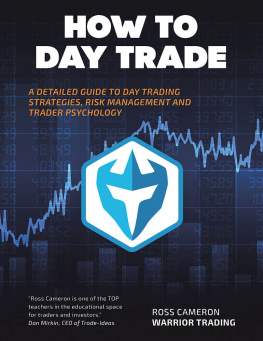
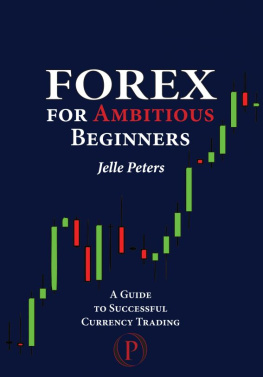
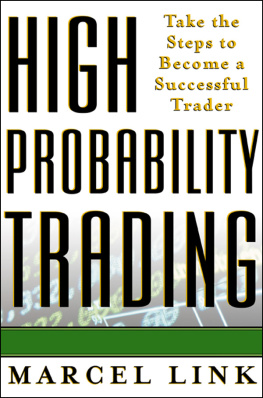

![Ryan Mallory [Ryan Mallory] - The Part-Time Trader: Trading Stock as a Part-Time Venture, + Website](/uploads/posts/book/124134/thumbs/ryan-mallory-ryan-mallory-the-part-time-trader.jpg)
